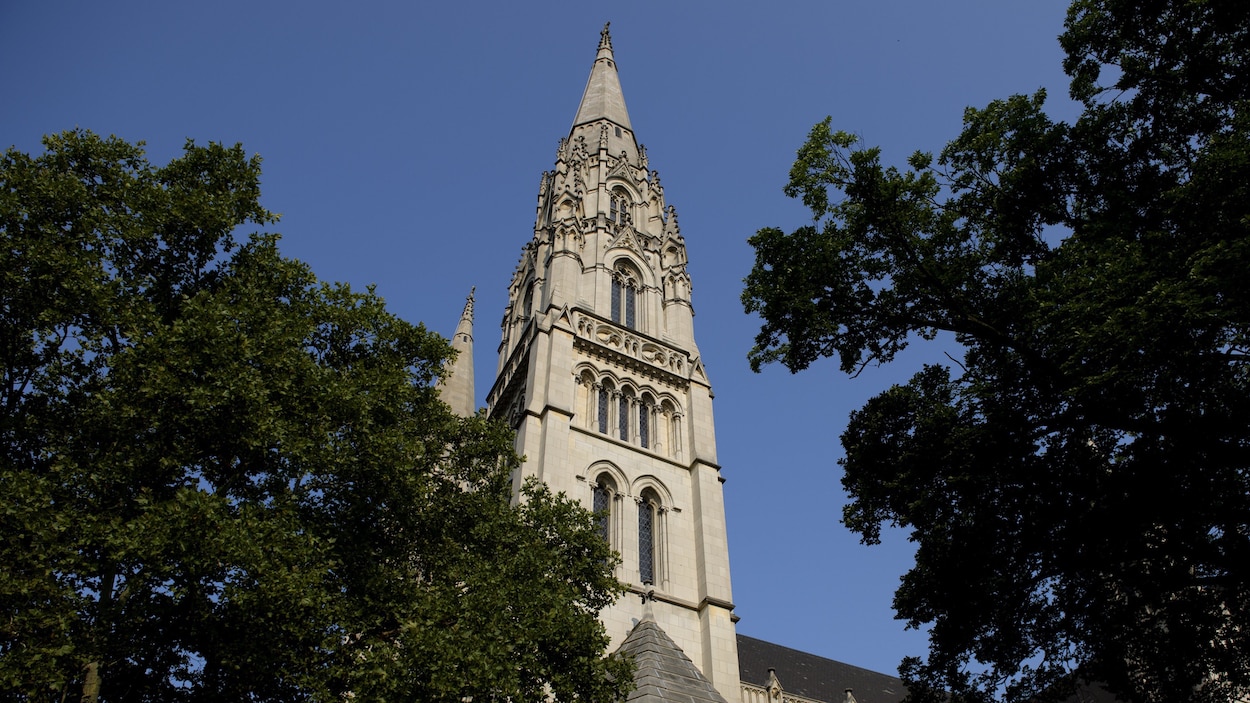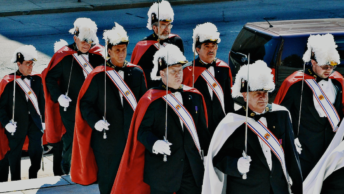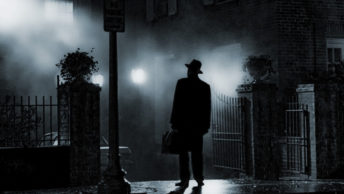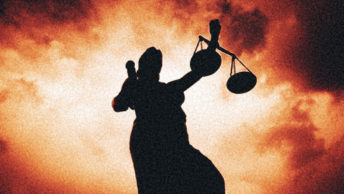Progressives’ war on Christianity in American took a decidedly destructive turn in December 2018 when Democratic presidential hopeful and U.S. Senator Kamala Harris (D-CA) asked federal judiciary nominee Brian Buescher if he knew that the Knights of Columbus saw abortion as the murder of innocent life and that the organization opposes gay marriage. Senator Mazie Hirono (D-HA) joined in the inquisition by asking if Buescher would recuse himself from a case related to abortion rights, and whether he intended to end his membership with the Knights of Columbus. Progressives like Harris have insisted that religion be taken out of the public square. They now seem to want Christians themselves to be expelled from the public square.
Progressive Democrats are one step away from asking, “Are you now, or have you ever been, or will you be in the future, a member of the Knights of Columbus?” In any other time, such questioning would have been dismissed as absurd. Now, as progressives march forward in their obsession with abortion, Catholics are a natural target. The senators’ questioning reflected overt anti-Catholicism and a disregard for religious toleration.
Religious toleration is unique to the West and developed in America through long struggle. Even after ratification of the First Amendment guaranteeing religious liberty as a constitutional right, anti-Catholicism remained a virulent force in American politics.
That Democrats such as Harris and Hirono feel politically safe attacking the Knights of Columbus shows how dismissive progressives are of the Catholic vote, once the core of the Democratic Party in the North. For these progressives the Catholic vote is less important than the pro-abortion female vote. Partisan politics aside, though, Harris and Hirono appear ignorant of the long struggle to ensure religious liberty in the nation.
Harris, who has presidential aspirations, sought to stake out her claim as a true progressive by challenging Brian Buescher’s appointment to the federal district court in Nebraska. In a series of written questions to Buescher, she posed the following question, which is worth quoting at length to get a full sense of the tone and implications of her pro-abortion and pro-gay marriage views:
“Since 1993, you have been a member of the Knights of Columbus, an all-male society composed primarily of Catholic men. In 2016, Carl Anderson, leader of the Knights of Columbus, described abortion as ‘a legal regime that has resulted in more than 40 million deaths.’ Mr. Anderson went on to say that ‘abortion is the killing of the innocent on a massive scale.’ Were you aware that the Knights of Columbus opposed a woman’s right to choose when you joined the organization?”
Harris also asked Buescher, “Were you aware that the Knights of Columbus oppose marriage equality when you joined the organization?” and “Have you ever, in any way, assisted with or contributed to advocacy against women’s reproductive rights?”1
Democrats’ Anti-Catholicism
The Knights of Columbus is a fraternal organization of Catholic men. Founded in 1882 as a mutual benefit society to provide relief for working men and immigrants, the Knights of Columbus is one of the few male fraternal organizations that continue to grow. Today it has around 2 million members in the United States and Canada. The Knights undertake admirable charity work in their communities, including food and clothing drives, after-school programs, Catholic education, and disaster relief.2 The Knights support Catholic social teachings and serve as a sort of Catholic anti-defamation league. The Knights’ positions on abortion and marriage are traditional Catholic doctrine. It is laughable to portray the Knights as an extremist organization.
Buescher, who was nominated by President Trump for a federal judgeship in Nebraska, replied that he had joined the Knights when he was 18 years old and had been involved in charitable work for the Knights. As to whether he could be a fair judge, given his strong Catholic views, he wrote that his role as a judge is to apply the law regardless of his personal convictions. Buescher added, “The Knights of Columbus does not have the authority to take personal political positions on behalf of all of its approximately two million members. If confirmed, I will apply all provisions of the Code of Conduct for United States Judges regarding recusal and disqualification.”3
Senator Lindsey Graham (R-SC), now chair of the Senate Judiciary Committee, reiterated the point when he tweeted to Buescher, “Hopefully, in the eyes of Democrats you are not disqualified to be a judge because of your religious affiliations and beliefs. The Knights of Columbus are a Catholic charitable organization who have genuinely held beliefs about marriage & abortion.”4
A Shameful History
This assault on Catholics as unsuitable to be judges was in evidence in the Brett Kavanaugh hearings in the Senate Judiciary Committee last summer. But this line of questioning of Catholic nominees as to whether they can be fit judges is not new. It was apparent in the Robert Bork hearings in 1987 under President Reagan. Bork, an eminently qualified jurist, was pilloried at the hearings as an extremist. Underlying the attacks that eventually led to Bork’s defeat was an implication that his judicial views on the Constitution were extreme because of his conversion to Catholicism.
Last March, Senator Dianne Feinstein (D-CA), once known as a centrist, challenged Michael Scudder, who had been nominated to the Seventh Circuit U.S. Court of Appeals. She raised questions about his parish work to establish a residential crisis-pregnancy center. This was followed in May when the Democratic Senator Sheldon Whitehouse of Rhode Island (a state founded on the concept of religious liberty) queried Peter J. Phillips about his association with the Knights. Last October, Feinstein, Harris and three other Democrats challenged Fourth Circuit nominee Allison Jones Rushing about her association with the Alliance Defending Freedom, a legal organization supporting religious liberty.
In November, Feinstein went after Third Circuit nominee Paul Matey by asking him if he would recuse himself from all cases involving positions taken by the Knights of Columbus.5 Recall, too, that Feinstein admonished the Catholic nominee Amy Coney Barrett in her confirmation hearings for the Seventh Circuit that her writings showed that “the dogma lives loudly within you, and that’s a concern.”6
Anti-Christian innuendo has not been directed exclusively at Catholics. Traditional Anglicans, Baptists and evangelical Protestants have also been on the receiving end when nominated for court and administrative positions by the Trump administration. Even Karen Pence, wife of Vice President Mike Pence, was the subject of critical coverage by the Washington Post, the New York Times and CNN in January. Her offense: accepting a part-time position teaching art at a Christian school with a code of conduct opposing “sexual immorality, homosexual activity or bi-sexual activity” and same-sex marriage—that is, the school supports Biblical principles about human sexuality.
Raising questions about the compatibility of traditional religious beliefs with public service is the same kind of attack that John F. Kennedy and Al Smith, both Catholics, endured in their presidential bids. Smith was defeated in 1928 in large part because of his religious affiliation—Catholic, which was associated with being anti-Prohibition or “a wet.”
Kennedy deflected charges that as a Catholic he might be more obedient to the Vatican than to the U.S. Constitution. Religious bigotry did not work in 1960 as it had in 1928. Progressive Democrats are gambling that it might work today—that pro-abortion and pro-gay marriage voters will outweigh Catholic voters who cast ballots based on their faith.
Modest Blowback
Few Democrats have broken with Feinstein, Harris et al. in condemning this prejudice. An exception is Rep. Tulsi Gabbard of Hawaii who announced she is seeking the Democratic nomination for president. Gabbard wrote an op-ed for The Hill accusing Senator Hirono and other Democrats of having “weaponized religion for their own selfish gains.”7
Hirono returned fire quickly, declaring that “Over the past two years, the Senator has been attacked by right wing ideologues for her examination of Donald Trump’s ideologically driven nominees to the courts. It is unfortunate that Congresswoman Gabbard based her misguided opinion on the far-right wing manipulation of these straightforward questions.” Hirono added that all of Trump’s judicial nominees have taken “very strong positions on issues such as a woman’s right to choose, LGBT rights, all of that— contrary to Supreme Court decisions, by the way.”8
The exchange did not end there. Gabbard’s spokesperson Lauren McIlvaine replied that Rep. Gabbard will “always fight for religious freedom and oppose religious bigotry—no matter where it comes from or to whom it’s directed.”9
Political observers conjectured that Gabbard was just seeking publicity for her presidential run that might attract Catholic voters. The issue of religious bigotry was lost in the world of political pundits who like to see any press statement as spin and not a genuine expression of belief. Gabbard’s father is a devout Hindu. Whatever her political ambitions, she has a stake in defending religious liberty for personal reasons.
Fortunately, the Senate as a whole had the good sense to implicitly rebuke Harris and Hirono. On January 16 the Senate approved without objection a resolution affirming “the sense of the Senate that disqualifying a nominee to federal office on the basis of membership in the Knights of Columbus violates the Constitution of the United States.”
Double Standards
Both Harris and Hirono showed how flexible (and political) are their standards of religious toleration. When President Trump imposed travel restrictions upon travelers from specific countries, Hirono described the policy as “a dark day for our country. Every time our country has singled out a minority group for discriminatory treatment, we have been proven very, very wrong.”10 The travel restriction issued by President Trump, later upheld by the courts, was not a restriction on Muslims generally but on travelers from specific nations, some of which have large Muslim populations. This distinction did not matter to Hirono or Harris.
Nobody asked Ruth Bader Ginsberg, who had headed the American Civil Liberties Union reproductive rights project, whether she could make a fair judgment as to reproductive rights when confirmed to the U.S. Supreme Court. If professing religious faith excludes any nominee to the court, the outcome would be a blanket exclusion of all faithful Christians, Jews, Muslims and Hindus from the court. Somewhere along the line, professing religious faith has become for progressives the equivalent of Communist Party membership in the 1950s. In fact, it seems that for some progressives it is more acceptable to have shown support for Soviet Communism than to be a Catholic. John Brennan, the head of the Central Intelligence Agency during the Obama administration, voted for Communist presidential candidate Gus Hall in 1976.
Anti-Catholicism seems to be on the rise in popular culture.11Catholic faithful are portrayed as bigots and hypocrites in movies, television and other media. Priests are broadly painted as pedophiles. It is deemed acceptable at Halloween for a man to dress up as a nun or priest and go to a party holding hands with another man, while it is virtually a hate crime to dress as a Nazi or Native American.
Vile caricatures of Catholic boys’ high school students circulated during the Brett Kavanaugh hearings last summer and then again in the wake of a viral video of Kentucky Catholic boys waiting for a bus following the annual March for Life in Washington, DC on January 19. A storm of initial media reports wrongly portrayed the MAGA-capped boys as intimidating an elderly Native American man beating a drum. After the boys were widely vilified and threatened and their diocese and Catholic school rushed to condemn them, further analysis of video footage revealed that the boys had behaved in a peaceful, exemplary fashion after provocation by verbally vicious “Black Hebrew Israelites” and by puzzling Native American agitators. Many news organs and commentators, quick to stereotype the students as entitled racist Catholic-school boys, had to eat crow.
Earlier Anti-Catholicism in the U.S.
These expressions of anti-Catholicism in American culture today parallel a long, unseemly tradition of anti-Catholicism in American history.
Anti-Catholicism was deeply rooted in Protestant America. The first Puritan settlers in New England were anti-Catholic. They came to the New World because they believed that the Church of England was too Catholic in its liturgy, vestments and church interiors. They sought a purified Protestant church and feared efforts by the royal house and church minions to restore Catholicism to the established church and the English nation.
Anti-Catholic prejudice carried over into the 19th-century United States. Mobs were aroused with warnings that recently arrived Catholic immigrants were tools of a Vatican conspiracy to turn America over to the pope. In 1834, an anti-Catholic mob in Massachusetts burned a convent to the ground. The mob had been stirred by tales that young women were being abused by priests in the convent school. In Philadelphia, anti-Catholic sentiment fueled Bible Riots in 1844 in which Catholic houses were torched, two Catholic churches destroyed and at least 20 people killed.
Anti-Catholicism spilled into American politics. The short-lived 1850s Know Nothing movement believed a “Romanist” conspiracy was threatening civil and religious liberties of Protestants. The 1856 Republican presidential candidate John Fremont was attacked widely because his wife was Catholic. Rumors circulated that Fremont had secretly attended a Catholic mass. Bigotry against Catholics continued into the late 19th century. The American Protective Association, an anti-immigrant and anti-Catholic organization, became a powerful force in Republican politics. The Ku Klux Klan in the 1920s combined racism and anti-Catholicism.
Foundations of Religious Toleration
Religious toleration is a hallmark of American exceptionalism. Religious toleration did not come easily to America, however. The great exponent of religious toleration, Roger Williams, was driven out of Massachusetts in the 1630s in part because of his belief in liberty of conscience. He made the colony of Rhode Island a refuge for those with dissenting religious beliefs. Williams was not a modern-day civil libertarian, but he believed in separation of church and state because he feared that an established religion allowed the state to corrupt the church.
Williams upheld the principle of “Liberty of Conscience” or “Soul Liberty.” He used an analogy of what he meant by this radical concept:
“There goes many a Ship to Sea, with many a Hundred Souls in one Ship. . .a true Picture of a Common-Wealth, or a human Combination, or Society. . . . Papists, Protestants, Jews and Turks may be embarked into one Ship. . . . [A]ll the Liberty of Conscience that I ever pleaded for, turns upon these two Hinges, that none of the Papists, Protestants, Jews, or Turks be forced to come to the Ship’s Prayers or Worship; nor, secondly be compelled from their own particular Prayers or Worship. . . .”12
He discounted fears of anarchy in a world of religious diversity. In a world of liberty, he explained, the commander of the ship should set the ship’s course, and if any seamen or passengers failed to perform their service or pay their freight or refused to obey the common laws of the ship, such transgressors should be punished.
Williams’s belief in religious toleration, or liberty of conscience, was embodied in the First Amendment to the U.S. Constitution, a unique document for its age. Religious toleration remains fundamental to our experiment in good government and civil life.
Progressives fail to understand how fragile our experiment is in bringing people of different faiths to live together. Much of the history of mankind has involved destructive wars over religion. Progressives such Senators Harris and Hirono, in raising anti-Catholic fears for political gain and as a means of thwarting Trump’s court appointees, are pursuing a dangerous agenda that reaches beyond immediate partisan gain. Inflaming religious passions threatens a well-ordered society, as the framers of the First Amendment to the Constitution understood.
Christians—including Catholics, evangelical Protestants and Mormons—are under assault by cultural elites. We don’t need our elected representatives joining this anti-Christian crusade. We will defend our liberties, replying to them: Shame, shame, you destroyers of liberty! We will defend ourselves in print, at the ballot box, and through our free exercise as Christians to pray for the preservation of our nation.
###
- Quoted in Matthew Continetti, “Kamal Harris’s Outrageous Assault on the Knights of Columbus,” National Review, January 12, 2019.
- Knights of Columbus charity efforts are described in http://www.kofc.org/un/ en/news/releases/knights-of-charity.html.
- Quoted in Matt Richardson,“Dems Accused of Religious Bigotry for Questioning Trump Court Pick’s Knights of Columbus Ties,” Fox News, December 24, 2018.
- Ibid.
- These cases are recounted in length in Matthew Continetti, “Kamal Harris’s Outrageous Assault on the Knights of Columbus,” National Review, January 12, 2019.
- Steve Cortes, “Anti-Catholic Senators,” Real Clear Politics, December 26, 2018.
- Alexander Bolton, “Gabbard-Hirono Clash Shocks Hawaii,” The Hill, December 12, 2019.
- Ibid.
- Ibid.
- Steve Cortes, “Anti-Catholic Senators,” Real Clear Politics, December 26, 2018.
- James Martin, “The Last Acceptable Prejudice?” America Magazine, March 25, 2000, recounts anti-Catholicism over two decades ago.
- Quoted in John M. Barry, Roger Williams and the Creation of the American Soul (New York, 2012), p. 365.








